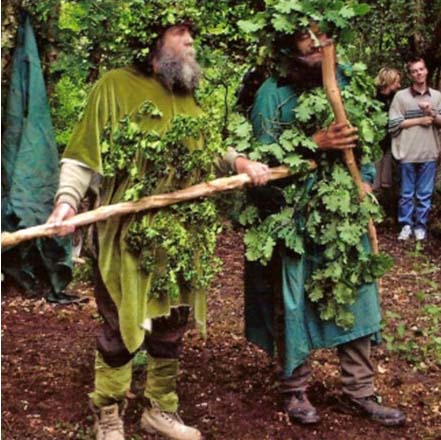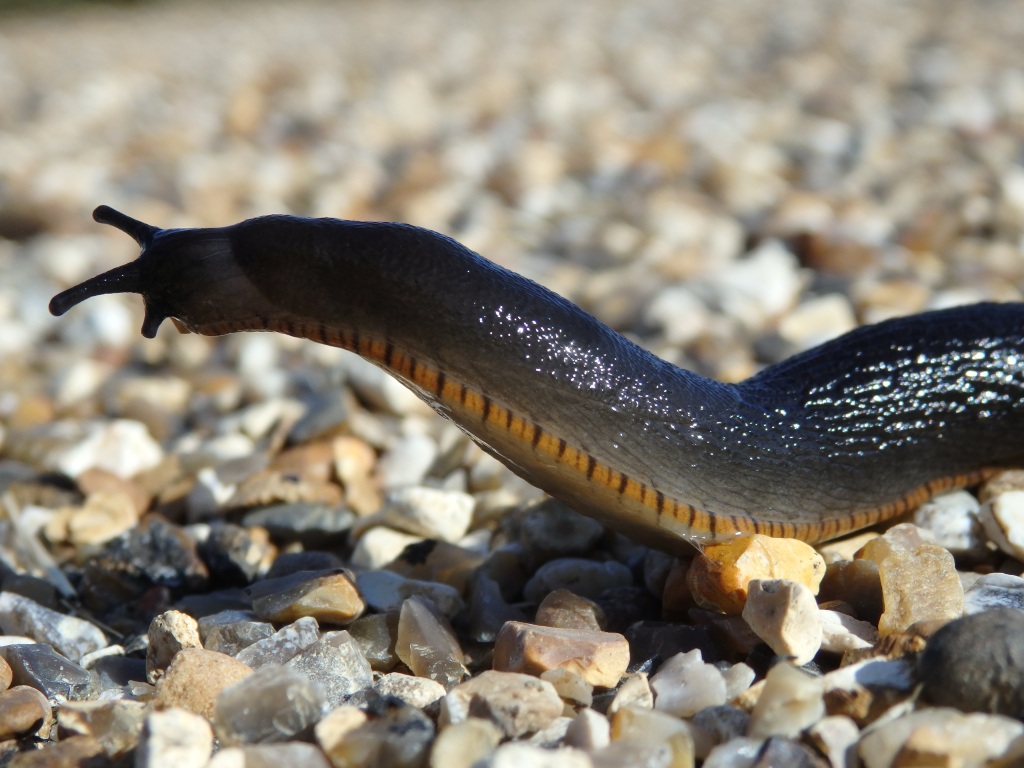Hello everyone and a belated Happy New Year! I hope you all had an uplifting Festive Season and, despite the recent ravages of wind and rain, are looking forward to 2024.
As our waking days start to stretch out with infinitesimal increases in daylight, we soldier on through these Winter months of the new year, while keeping an eager eye out for any early signs of spring. Already we are waking up to those first few experimental songs of Blackbirds, and courting frogs are creating a less melodious, but just as welcome, chorus in our ponds. Catkins adorn the Hazel and Willow trees, and the Primroses are popping up in woodland and on our banks and verges.
We are starting our TQW year by continuing our trawl through the archives. As we reach the last nine letters of our mini Environmental Encyclopaedia, here, hopefully for your delectation, are the Rs and the Ss!

Rabbit:
Rabbit owners will be familiar with the fact that Flopsy produces both a soft and a hard pellet, the former is eaten and mixed with food in the stomach so that the nutrients are absorbed the second time around.
– TQW March 2014
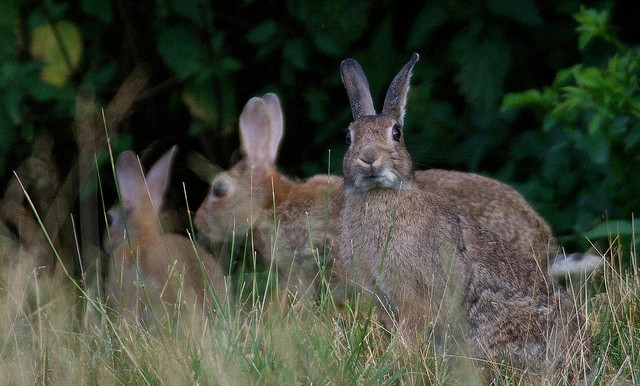
Red List:
An assessment of the status of all Britain’s 245 bird species with Green, Amber or Red lists according to the level of conservation concern. As always it is a shock to see which of our birds, thus far taken for granted by many, are now at the highest level of extinction risk.
– TQW April 2022
Red Squirrel:
With a UK population of a mere 140,000, our native Red Squirrel (Sciurus vulgaris) is in real danger of coming to the end of 10,000 years of inhabiting these islands.
Not only is the Grey bigger and more robust, it has the added advantage of being able to digest seeds with a high tannin content more efficiently. This means they can gnaw away on acorns to their heart’s content, as we have seen in QW, and are better suited to populating deciduous woodland than the Red who, despite eating a variety of shoots, seeds, berries and fungi, rely heavily on Pine Nuts in their diet.
– TQW Feb 2018
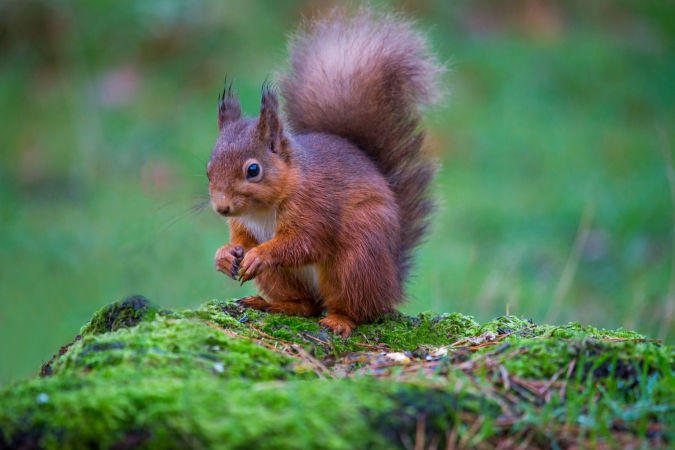
Reindeer:
Only the female Reindeer keep their antlers throughout winter and therefore Rudolph is more likely to have been called Rachel!
– TQW December 2014
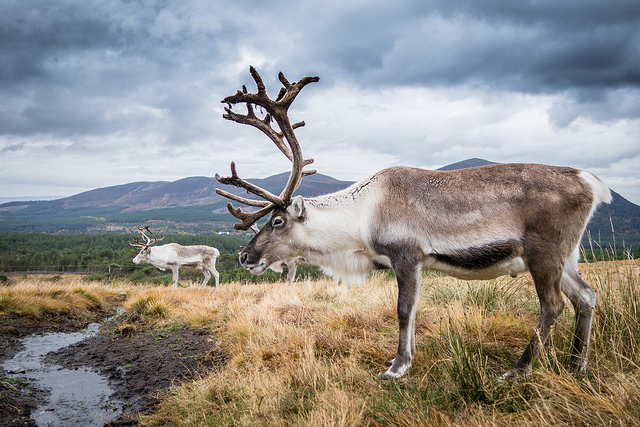
Robin:
Walk through our little reserve and you will hear the familiar high pitched, almost wistful song before you see the bird (if you are lucky) perched high in the trees or in thick undergrowth.
– TQW December 2011
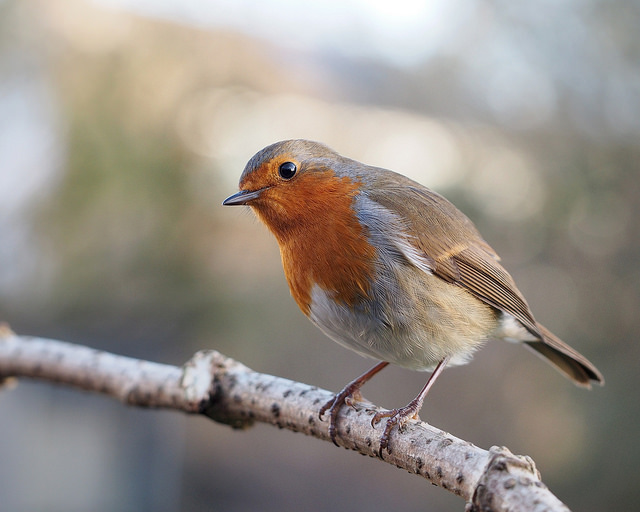
Romans:
Who better to straddle the millennia of the Anthropocene, and give us back a sense of worth than our old friends, the Romans. Not for the first time, the language of the Sandal’d and Toga’d Ones will be central to this month’s ramblings.
– TQW June 2019

Rossetti, Christina:
But give me holly, bold and jolly,
Honest, prickly, shining holly;
Pluck me holly leaf and berry
For the day when I make merry.
– TQW December 2015

Royal Society for the Protection of Birds:
The RSPB states Mallards and their nests are protected by the Wildlife and Countryside Act 1981, which makes it an offence to intentionally kill, injure or take any wild bird, or to take, damage or destroy its nest, eggs or young. Therefore, it is important not to chase a duck that has started nesting, since she must be allowed access to her nest. If you find a nest full of eggs, you must not interfere with them.
– TQW June 2014
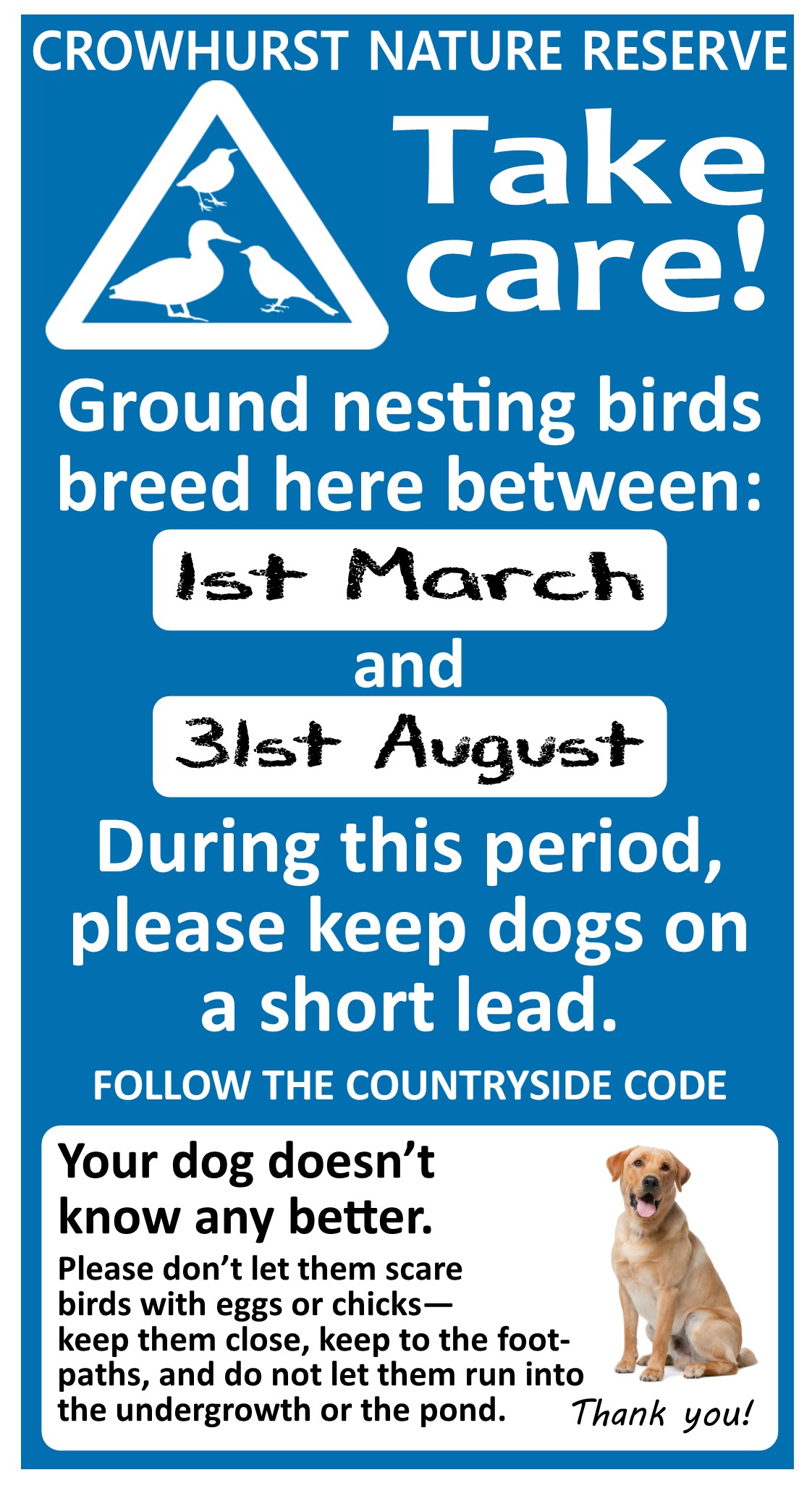

Saunders, John:
John touched the lives of many people in and around Crowhurst and played a notable role in the history of our little reserve. Who can forget the irascible pair of talking trees who entertained us at our very first event in 2002? Even now, when walking through the Chestnut trees, I half expect John and Pete Linfield to emerge from the undergrowth in their Ent-like foliage, grumbling about people disturbing their rest before heading down the hill for a pint!
– TQW December 2021
Shakespeare, William:
Shall I compare thee to a summer’s day?
Thou art more lovely and more temperate:
Rough winds do shake the darling buds of May,
And summer’s lease hath all too short a date:
Sonnet XVIII William Shakespeare 1609
– TQW June 2014
Slow Worm:
A subtle mixture of brown and gold, these lovely animals appear almost metallic in the sunlight, especially when young. Adult males lack the dark stripe of the females but often have a series of iridescent blue dots along their side.
– TQW June 2021
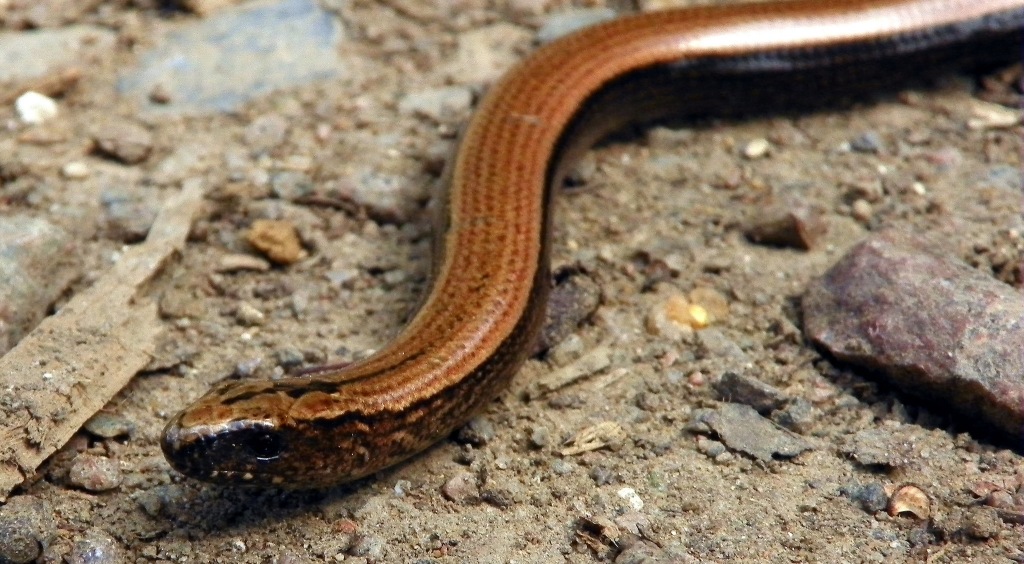
Slugs:
These ubiquitous Gastropods belong to the venerable Phylum, Mollusca, and carry a vestigial shell as a mark of respect to their evolutionary Snail ancestor. While they are very useful in the compost bin there is no getting away from the fact that they cause a huge amount of damage to crops and garden plants alike. Their tongue-like organ, called a radula, with its 27,000 tooth-like protrusions, acts like a rasp and enables an individual Slug to eat something in the region of forty times its own weight in a single day.
– TQW November 2021
Spall, John:
I was a relative newcomer to the village when the photo on the right was taken, a young looking, bearded chap, seemingly a tad bemused while helping to assemble the first pond bench in Quarry Wood. The 2002 Woodland Festival was the beginning of a very successful collaboration between the Arty Farties and Quarry Wood. Farewell John, it was a real pleasure to walk the same trails with you.
– CN April 2023
Spalting:
Given favourable temperatures and water content, both hard and soft woods can be spalted. However, the tell-tale mottled bleaching caused by the concentration of white hyphae of numerous fungi is more often found in hardwoods such as Oak, Ash and Beech.
– TQW March 2020
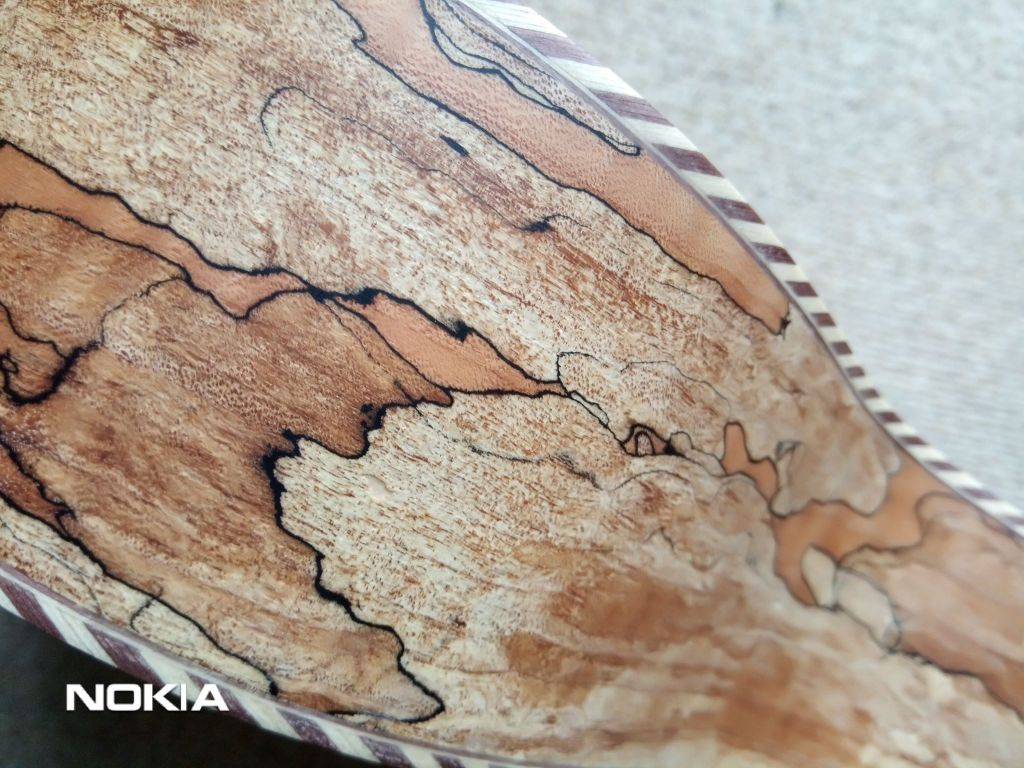
Swift:
As they hurtle through the air, beaks open to catch flies and airborne spiders, Swifts emit a high-pitched call which people in the past thought were the screaming souls of the departed being taken to Hell.
– TQW May 2022
Next month will be T, U, V, and April will gallop through the rest of the alphabet, drawing the TQW Encyclopaedia to a close. Later on in the year I will look at the ways we are hoping to encourage the next generation to take on the mantle of environmental stewards as we celebrate 25 years of Quarry Wood. In the meantime, have a safe winter and let’s look forward to a wonderful year in the British countryside.
The rock-like mud unfroze a little, and rills
Ran and sparkled down each side of the road
Under the catkins wagging in the hedge.
The Manor Farm, Edward Thomas (1914)
Paul Johnson
pgcrow@yahoo.com


